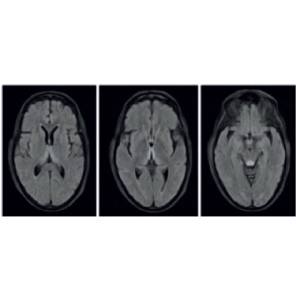Wernicke encephalopathy and beriberi disease presenting as STEMI-equivalent

All claims expressed in this article are solely those of the authors and do not necessarily represent those of their affiliated organizations, or those of the publisher, the editors and the reviewers. Any product that may be evaluated in this article or claim that may be made by its manufacturer is not guaranteed or endorsed by the publisher.
Authors
Thiamine deficiency is commonly associated with malnutrition, alcoholism and bariatric surgery. Thiamine deficiency can manifest in different ways, especially in developing countries: as peripheric neuropathy, as Wernicke encephalopathy or as beriberi disease. The authors present the case of a 72-year-old male, with a hiatal hernia that led to thiamine deficiency due to malnutrition. The initial clinical manifestation was an ST-elevation myocardial infarct equivalent, an ECG with a shark-fin pattern that evolved to a Wellens type B pattern. The patient evolved with severe altered mental status. A Wernicke encephalopathy diagnosis was confirmed by MRI; the patient was medicated with high-dose thiamine, with quick recovery, both neurologic and cardiac. The clinical history and response to treatment confirm the diagnosis of Wernicke encephalopathy and beriberi disease.
How to Cite

This work is licensed under a Creative Commons Attribution-NonCommercial 4.0 International License.






